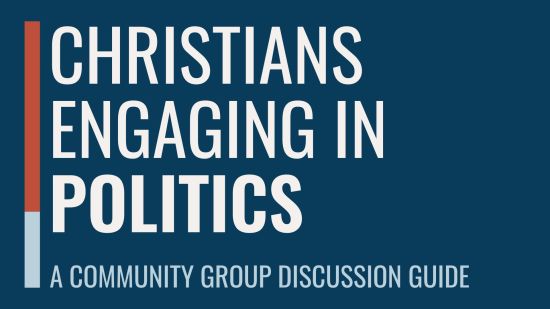Voting is an important opportunity and privilege we have as citizens of the United States. Together, we get to choose the leaders that we are subject to (Romans 13:1). The type of leaders we vote for has a big impact on whether people thrive or suffer (Proverbs 28:12; Proverbs 29:2). We are called to pray for leaders “that we may lead a peaceful and quiet life” (1 Timothy 2:1-2), because there is often no peace and quiet when leadership fails.
Because voting is important, you want to make good decisions at the ballot box. You want to know which candidates or policies you are voting for, and why those are your best options. It shouldn’t be a split-second decision based on simple name recognition or party affiliation.
To help you vote wisely, here are some guidelines for how to think through the choices you have this election season.
Vote Based on Truth
As Christians, we should vote based on the truth of God’s Word and what it has to say about the issues of today. If you are not sure what it has to say on an issue, a topical search tool like the one at OpenBible.info can be helpful—along with knowing how to read your Bible, understand the context, and apply it correctly.
You also need to vote based on truth about the candidates and propositions on the ballot. That means being informed and understanding who or what you are voting for (Proverbs 18:2; Proverbs 18:13). It also means cutting through misinformation (Proverbs 14:15) or biased information from only one party’s platform (Proverbs 18:17).
This will require some work. You may have to listen to a variety of reputable news sources to balance out the inherent biases or consult independent voter guides to see what platform each candidate is really running on. But acquire the knowledge you need to make an intelligent, wise decision (Proverbs 18:15).
Vote for the Common Good
Voting can be a way to love your neighbor (Galatians 5:14), if you vote for people or policies that will promote the common welfare. In some cases, that might mean voting against some of your own personal interests, if voting that way is in the best interests of everyone else (Philippians 2:3-4). As an example, it’s possible that a certain tax or economic plan might cost you financially but be better for the majority of people as a whole.
Ultimately, seeking the welfare of the city, state, or country where you live benefits everyone, including yourself (Jeremiah 29:7).
Vote With Discernment
Even if you have the right information and motivations, you will still have to make tough decisions. That’s because no candidate is perfect, and many political issues do not have clear-cut right or wrong answers.
For example, the Bible is very clear that we are called to help the poor (Deuteronomy 15:11; 1 John 3:17). But there are many different ways to do that. Well-meaning believers who love the poor can have different convictions about which policies or positions are most helpful. They can disagree and vote differently, even if their hearts are in the same place.
Also, not every issue has to carry the same weight. Some issues might have clearer biblical mandates or have a bigger impact on the common good. You have to decide how to weigh the importance of each factor. It’s possible, for instance, that you might disagree with one candidate on a bunch of small issues, but be convinced that his or her biblical positions on just a few important topics makes that candidate the best available option. Or the reverse could be true: a candidate might be “wrong” on one important topic, but be “right” on so many other smaller issues that they outweigh the one negative.
It’s up to you to use your powers of discernment (Hebrews 5:14) to weigh such things and determine how to vote. Pray for wisdom (James 1:5) and listen to what God might have to say to you through His Word, His people, and the Holy Spirit (1 Thessalonians 5:19). Discussing such questions in community can be a helpful way to sharpen one another (Proverbs 27:17) when it comes to voting. You don’t necessarily have to agree; the goal is for each person, after careful consideration, to be convinced of how they can honor the Lord through their votes (Romans 14:1-12).
In everything, we are to be transformed by Christ, to love like Christ; not conforming to this world, but renewing our minds so that we “may discern what is the will of God, what is good and acceptable and perfect” (Romans 12:2). The way we vote, and the way we engage with each other about voting issues, should look different because of our relationship with Christ.
To learn more about how you can vote, visit our election and voting resources page.


